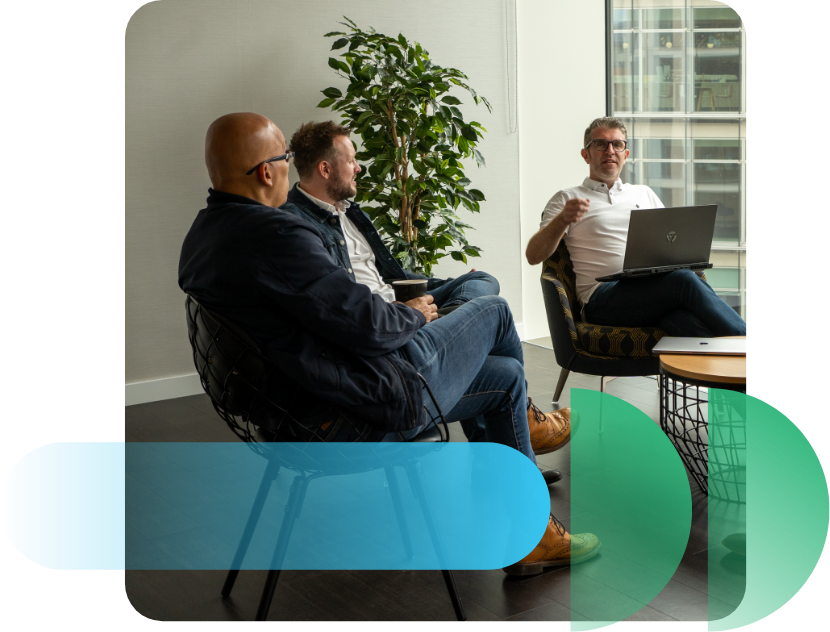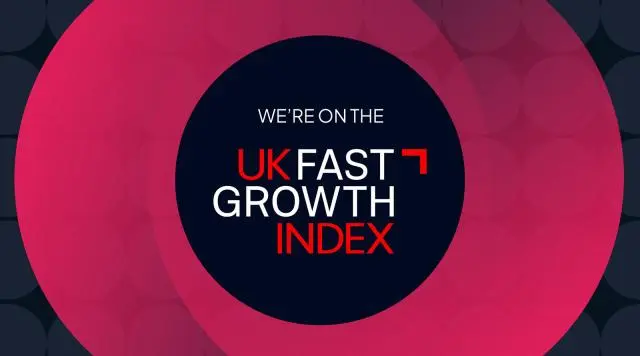Enterprise Architect
5Y are looking for an Enterprise Architect (EA) who will play a key role in aligning our technology strategy with its overall business goals. The EA is responsible for designing and overseeing the implementation of IT architectures that support the long-term strategy of the organisation, ensuring scalability, security, and efficiency.
This role involves working closely with stakeholders from various departments to develop comprehensive architectural solutions and roadmaps that address business needs while promoting innovation and operational excellence.
Your Key Responsibilities:
Architecture Development and Strategy
- Develop Enterprise Architecture: Design and maintain the enterprise architecture blueprint, encompassing business, data, application, and technology domains.
- Align IT and Business Strategy: Ensure that IT strategies and initiatives are aligned with the organisation's overall goals and objectives.
- Create Roadmaps: Develop and maintain long-term architectural roadmaps for the organisation's IT systems, identifying areas for improvement and future growth.
- Technology Integration: Lead the evaluation, selection, and integration of new technologies that improve efficiency and competitiveness.
Solution Design and Governance
- Solution Architecture: Oversee the development of solution architectures that address specific business challenges, ensuring they are scalable, secure, and aligned with enterprise standards.
- Governance and Compliance: Establish architecture governance frameworks to ensure consistency and compliance with internal policies, regulatory requirements, and industry standards.
- Technology Standards: Define and enforce standards, best practices, and frameworks for IT architecture, development, and infrastructure.
- Risk Management: Identify and mitigate architectural risks, ensuring systems are resilient and secure
Stakeholder Collaboration and Leadership
- Cross-functional Collaboration: Collaborate with various business units, IT teams, and stakeholders to understand their needs and translate them into architectural solutions.
- Executive Communication: Present architectural strategies and roadmaps to senior management and executive teams, providing recommendations for technology investments and innovation.
- Team Leadership: Provide technical leadership to development and infrastructure teams, mentoring and guiding them through architectural decisions.
- Vendor Management: Manage relationships with external technology vendors and service providers, ensuring solutions meet business needs and align with the architectural vision.
Innovation and Continuous Improvement
- Emerging Technologies: Stay informed about emerging technologies, trends, and innovations, evaluating their potential impact and benefits for the organisation.
- Optimise IT Infrastructure: Continuously assess and improve the organisation's IT infrastructure, driving optimisation initiatives that reduce costs and increase efficiency.
- Cloud Strategy: Develop cloud adoption strategies and ensure smooth migration and integration of cloud-based solutions where appropriate.
Data Management and Integration
- Data Architecture: Design and manage data architecture strategies that ensure effective data governance, security, and accessibility across the organisation.
- Integration Strategy: Ensure seamless integration between various business systems, applications, and platforms, promoting interoperability and reducing silos.
- Digital Transformation: Lead digital transformation initiatives, ensuring the organisation adopts modern technology solutions that enhance operational effectiveness.
Key Skills and Competencies
Technical Skills:
- Enterprise Architecture Frameworks: Expertise in TOGAF, Sachman, or similar architecture frameworks.
- Cloud Technologies: Strong understanding of cloud platforms (e.g., AWS, Asure, Google Cloud) and cloud-native application architectures.
- Systems Integration: Proficiency in systems integration and middleware technologies (e.g., APIs, ESB, microservices).
- Security Architecture: Knowledge of cybersecurity principles and best practices in the design of secure, compliant systems.
- Data Management: Experience with data architecture, governance, and management tools (e.g., data lakes, warehouses, and ETL processes).
- DevOps and Automation: Familiarity with DevOps practices, continuous integration (CI), continuous delivery (CD), and infrastructure automation tools (e.g., Kubernetes, Terraform).
Business and Leadership Skills:
- Strategic Thinking: Ability to think strategically and translate business goals into actionable architectural plans.
- Stakeholder Management: Excellent communication and stakeholder management skills, able to interact with business leaders and technical teams effectively.
- Problem-Solving: Strong analytical and problem-solving skills, with the ability to design solutions for complex business challenges.
- Team Leadership: Leadership and mentoring experience, with the ability to influence teams and stakeholders to adopt architectural best practices.
Required Qualifications and Experience:
- Education: Bachelor's or Master’s degree in Computer Science, Information Technology, or related field or relevant work experience. Relevant certifications such as TOGAF, AWS Solutions Architect, or ITIL are an advantage.
- Experience:
- 7+ years of experience in IT architecture, solution design, and strategy, including 3+ years in a senior enterprise architect role.
- Proven track record of designing and implementing complex IT solutions in large-scale environments.
- Experience in cloud strategy, digital transformation, and data architecture.
- Familiarity with Agile and DevOps methodologies.
KPIs and Performance Metrics:
- Business Alignment: Degree to which architectural solutions align with business strategy and contribute to business goals.
- Project Success: Successful delivery of architecture projects within scope, time, and budget.
- Cost Optimisation: Impact on cost savings and efficiencies through architectural improvements and optimisation.
- Technology Adoption: Successful adoption of new technologies and tools, ensuring smooth integration and minimal disruption to operations.
- Stakeholder Satisfaction: Feedback from business units, IT teams, and senior management on the value delivered by enterprise architecture.

At 5Y, we foster a culture of inclusivity, collaboration, and respect.
At 5Y we believe that success is not just about the destination but the journey. As a cutting-edge company, 5Y is dedicated to fostering an environment that values innovation, collaboration, and most importantly, our incredible team members.
We understand that our employees are the heart and soul of our organization, and their growth and well-being are at the forefront of our mission.
Apply for this role at 5Y
If you want to become a member of the 5Y team and improve the way our customers use their data, then please fill out the form. A member of our team will be in touch as soon as possible.
Can’t see the role you’re looking for?
Curious about a career with 5Y but can’t find the right role available currently? Send us your CV and we’ll be in touch if a suitable role becomes available.

 Saudi Arabia
Saudi Arabia





